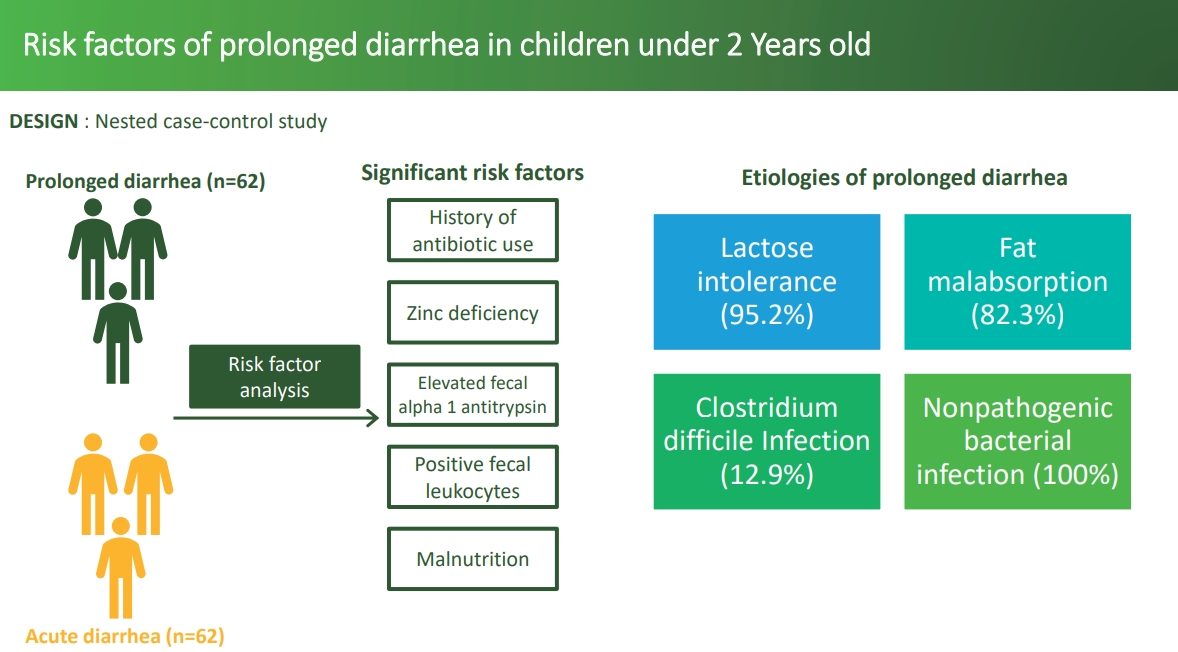
|
Question: What are the risk factors for prolonged diarrhea in children under 2 years old?
Finding: History of antibiotic use, zinc deficiency, and elevated fecal alpha-1 antitrypsin levels were the main risk factors of prolonged diarrhea in children under 2 years old with acute diarrhea.
Meaning: Rational antibiotic usage is necessary as well as thorough testing of serum zinc level and fecal alpha-1 antitrypsin levels. |


